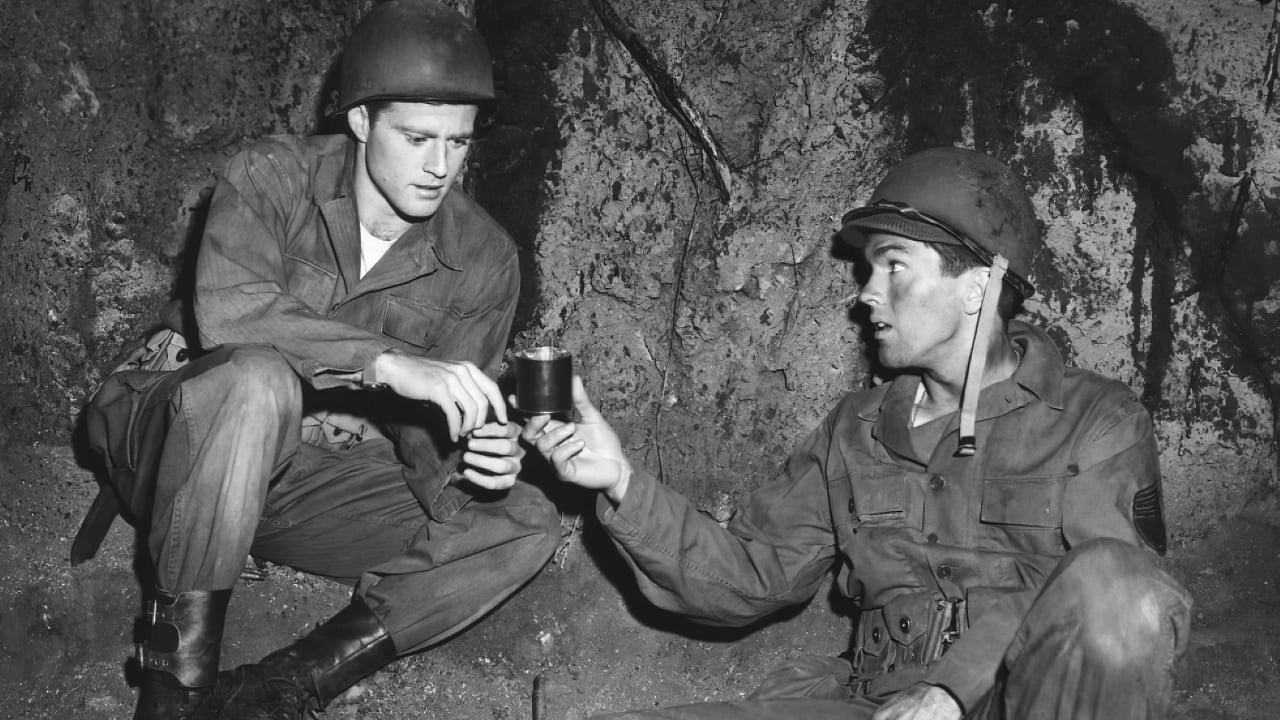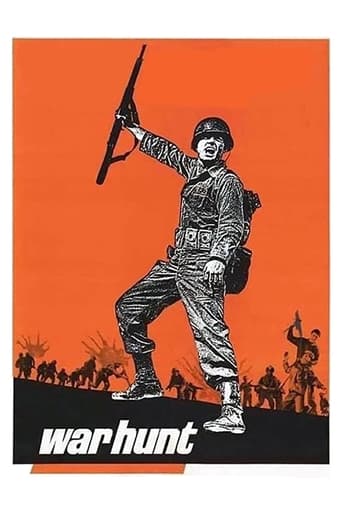

everything you have heard about this movie is true.
... View Moreit is the rare 'crazy' movie that actually has something to say.
... View Morea film so unique, intoxicating and bizarre that it not only demands another viewing, but is also forgivable as a satirical comedy where the jokes eventually take the back seat.
... View MoreIt's funny, it's tense, it features two great performances from two actors and the director expertly creates a web of odd tension where you actually don't know what is happening for the majority of the run time.
... View MoreAt the outset the film appears to be about the typical effects of war and its effects upon the soldiers and population surrounded by it. A closer look though reveals the questioning of the purpose of the Korean War. Besides the negative psychological effects upon the soldiers; they constantly seem to ask themselves, through the eyes of Robert Redford, what the purpose behind the killing is. We are constantly reminded that this was a war fought by the politicians and bankers to the detriment of the soldiers and the Korean people who suffered. This is ironically depicted when we see a group of soldiers being driven to the front while one of them is looking at the price of Wall Street stock prices. Redford in this, one of his early film debuts, dramatically questions the senseless violence. This is emphasised at the end of the film by the senseless killing of a fellow American soldier who looses control over his ability to distinguish between killing as a soldier and for no reason at all.
... View MoreWar Hunt explores the possibility that a decorated and successful combat soldier can also be a dangerous psychotic killer. The film is set during the last days of the Korean War. Endore (John Saxon) conducts voluntarily patrols to Chinese outposts, and is valued by his commanding officer. The other platoon members appreciate Endores courage and toughness under fire, and probably love the fact his solitary patrols keep them safe in their own lines. But Endore has his own personal motives for his nocturnal sojourns. He gets to kill people, and he probably enjoys it. As a matter of fact, he most likely is a serial killer. No doubt he is a social outcast in civilian life and would be even in the peacetime army. In any other environment, hed wind up in a prison or mental hospital. Luckily (for him) the Korean battlefront is his element.John Saxon plays Endore to frightening perfection. Blank, emotionless facial expression. Psychotic stare, just a hint of malevolent violence seething beneath his limited social skills. In the films scariest scene, Endore knifes a Chinese soldier to death unnecessarily, then dances around the body. A ritualized killing. Endore is one scary stranger. Id stay away from him, so would you. Hes the guy we read about in the papers, maybe even joke about nervously.This crazy mans nemesis arrives in the form of Roy Loomis, a young and frightened recruit. He is shocked and disgusted by Endores actions, but is rebuffed by his CO and squadmates. Loomis isn't worth anything. It's Endore who is valuable, who can kill, who can do the dirty work. Loomis is annoyingly innocent however, and you know there's going to be a big confrontation coming up.The confrontation arrives in the form of a cease fire.The Korean War is ending, but has Endores war just begun? Check it out and see. Fast moving, suspenseful, frightening. Best line: Endore(explaining how he can sneak up on the enemy without being seen) "Because I'm invisible---the truth blinds you."
... View MoreThis character study remains one of the best intimate views of conflict ever filmed, and features Robert Redford's first film appearance. There's also a major appearance by actor Sydney Pollack, before he made is mark as a major director. It's starkly made, grim, and engaging, without any of the jingoism and/or sentimentality applied to most older and recent Hollywood product. The moody score was provided by jazz composer Bud Shank. Nice.
... View MoreThis has got to be one of the least expensive movies ever made outside the Roger Corman organization, shot on a bare lot in a few weeks. Redford (not yet a heart throb) plays Loomis, newly assigned to an infantry company under the command of a curiously unassertive captain who shows an especially protective attitude toward John Saxon's enlisted man. No homosexuality is implied on the part of the captain. He seems more fearful of Saxon than attracted to him, and he depends on the information Saxon brings back from his nightly solo patrols behind the Chinese lines. The reason for the diffidence shown Saxon by the captain, and by all other members of the company, becomes clear when we see him in action at night, his face painted a ghastly black, slitting throats and doing a little war dance around the bodies. Killing is what Saxon does. It's practically ALL he does. He sleeps while the other grunts work, and whistles loudly and heedlessly while others sleep and he cleans his weapons. Except when murdering or teaching his young Korean orphan friend how to play the game, he maintains a vacant expression, doesn't remember to call officers "Sir," and is convinced with absolute certainty that he's doing what he does flawlessly. While being debriefed after a night patrol in which he discovered a heretofor unknown Chinese listening post ("One of them was asleep," he comments smoothly) the captain asks him if, you know, well, this is kinda important and, does he think he maybe should go back and make sure his information is accurate. And Saxon looks up from his coffee blankly and asks, "What for?" Saxon is quite good, actually. Redford hadn't yet got control of his minimalist style. The two of them represent sets of entirely different values: Saxon, who is driven by the same demons that move any ordinary serial killer; and Redford, whose convictions are bourgeoise. The focus of their conflict is the Korean orphan. Redford wants to put him into an orphanage where they will at least feed and clothe him and teach him how to play baseball instead of how to murder people. He tells Saxon this and threatens to take the matter to higher authority, generating from Saxon a withering stare filled with hellish and unfathomable emotions because, aside from serial killing, the Korean boy is the only meaningful thing in Saxon's life. It ends as you'd expect. Saxon would never have made it in civvy street anway. This is the trouble not only with efficient and committed killers like Saxon (and like Steve McQueen in "Hell is for Heroes," as another commentor pointed out) but with many military heroes, alas. So many of them seem prompted to extraordinary things without being too clear about whether their circumstances are extraordinary or otherwise. Francis Ford Coppola was a driver on one of the army trucks in this movie.
... View More